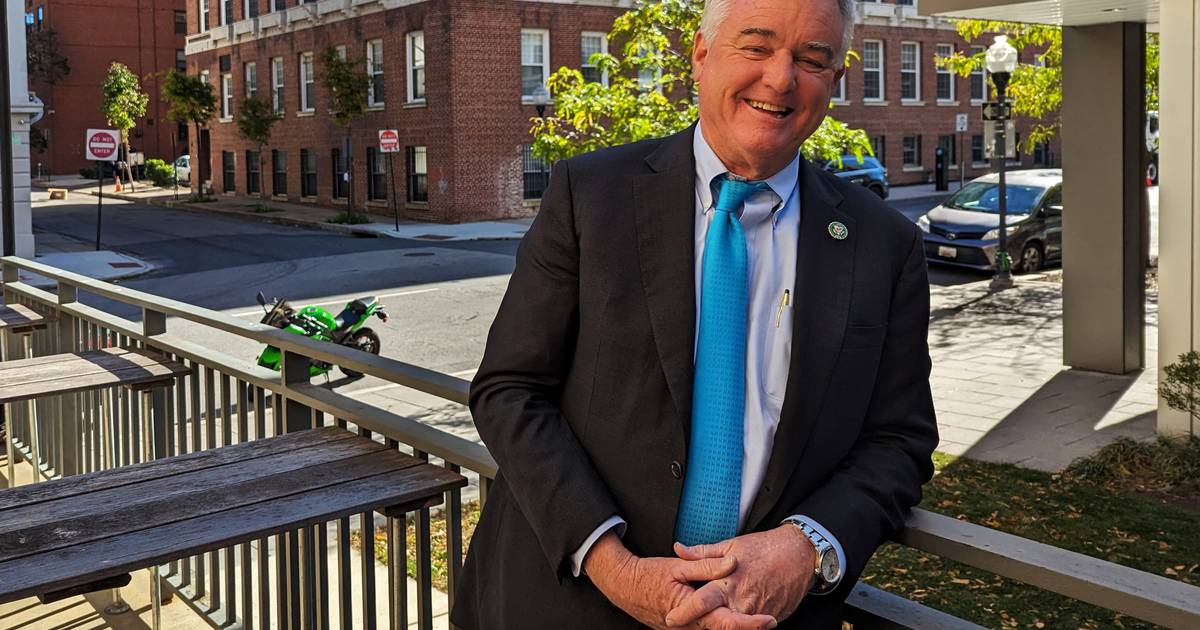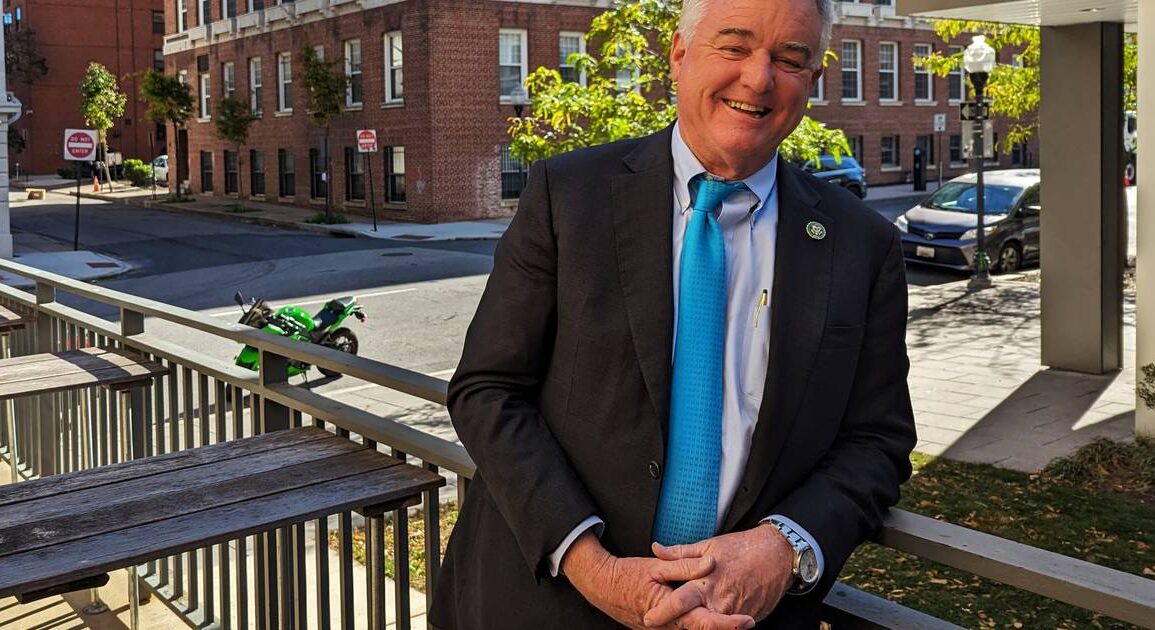
As Maryland’s 6th Congressional District representative and a candidate for the Senate, David Trone talks a lot about criminal justice reform, a subject embraced over the last decade by formerly tough-on-crime Democrats and even by a few Republicans who see potential dividends in smaller prison populations.
Trone’s expressed interests in seeing fairness and integrity in law enforcement and second chances for ex-offenders appear to be genuine — not simply a way to flash progressive colors as he tries to convince Maryland Democratic primary voters that he should be the one to succeed the retiring Ben Cardin in the Senate.
Trone, a wealthy business owner in his third term in Congress, came to justice reform neither recently nor easily.
Something I did not know about him until the other day: He was accused and abused by the criminal justice system in Pennsylvania more than 35 years ago as he, his wife and brother set out to establish what has since become a large and profitable company selling wine, beer and booze.
When I asked about his interest in criminal justice, Trone immediately brought up his difficulties in the 1980s and 1990s with liquor control and law enforcement authorities who accused him of violating Pennsylvania regulatory statutes on the pricing, advertising and distribution of alcoholic beverages.
Trone believed the charges against him were purely political: Small beer-and-wine retailers complained about the way the Trones muscled into their business, and state regulators responded. The fight dragged on, though the charges against David Trone were dropped, and his chief antagonist, former Pennsylvania Attorney General Ernie Preate, a Republican, ended up in federal prison on unrelated corruption charges.
Trone came out of the fracas clean but scarred — and committed to the principles of the American Civil Liberties Union. As he tells it, his business, Total Wine and More, grew and made him wealthy, but his personal experience with the justice system made him forever conscious of the need to help those with fewer resources get a fair shake.
“I was successful because I had money,” he says of his experience in Pennsylvania courts. “I could hire good lawyers. I was offered a plea the day after we were arrested. I said ‘no way, I wasn’t going to have that on my record.’ But the folks who are incarcerated, they have that on their records because they take pleas, and they don’t have the money to hire good legal representation, and I’m white and they’re not. Those are the advantages that I have that they don’t have.”
As the years passed — the most robust years of the nation’s war on drugs — Trone saw the U.S. take the global lead in incarceration.
“We have 25% of the world’s prisoners, and we’re 4.3% of the world’s population,” he says, citing an ACLU estimate.
We now have nearly 2 million people in federal, state and local prisons and jails, according to the Prison Policy Initiative, the nonprofit that reliably collects and centralizes incarceration data from all states. We spend about $80 billion a year on locking people up. The ACLU says Black Americans are incarcerated for drug offenses at 10 times the rate of white Americans, though people of both races use drugs at roughly the same rates.
All of this is top-of-mind for Trone, who, with his wife, June, made a $15 million donation to the ACLU in 2015 to establish the Trone Center for Criminal Justice Reform. Its mission is to reduce prison populations and recidivism.
Rates of recidivism — the percentage of inmates who return to federal or state prison within three years of their release — vary across the country. But it can reach as high as 70% in some states. (Recidivism in Maryland fell significantly over the last 20 years, from nearly 60% to below 40%, in part, some suspect, because of a decrease in arrests.)
The solution, says Trone, is immediate employment. He cited studies that showed low recidivism, below 10%, for inmates who have a job coming out of prison. The outcomes are far worse for those who are denied employment because of their criminal records.
Trone and the advocates he funds are trying to convince more corporations to give ex-offenders a second chance. His own company, he says, has hired some 1,400 people with criminal records. “Never had a problem,” he adds. “Not one single one, zero.”
In Congress, Trone is co-chair of the Bipartisan Second Chance Task Force, examining ways to improve employment for people with criminal records. Among the group’s supporters is JPMorgan Chase CEO Jamie Dimon. “He’s all over this issue,” Trone says. “Ten percent of his workforce are returning citizens.”
Prison is about punishment, Trone says, but it should also be about preparing an inmate for release. The second chance should start inside the walls.
“Ninety-five percent of folks that are incarcerated come back out,” he says. “So everything we do in prisons needs to change to how we make [inmates] successful when they reenter society. That makes society safer. It makes society more productive. … We’re talking to big companies like UPS, FedEx, Target, Walmart about hiring folks right when they leave … so when they walk out the door, they have a job.”
This isn’t the only subject Trone cares and talks about. But his commitment to restorative justice — with not just words, but money — reveals both a progressive’s empathy and a business owner’s sensible approach to a problem. More on this candidate in future columns.
This post was originally published on this site be sure to check out more of their content.







